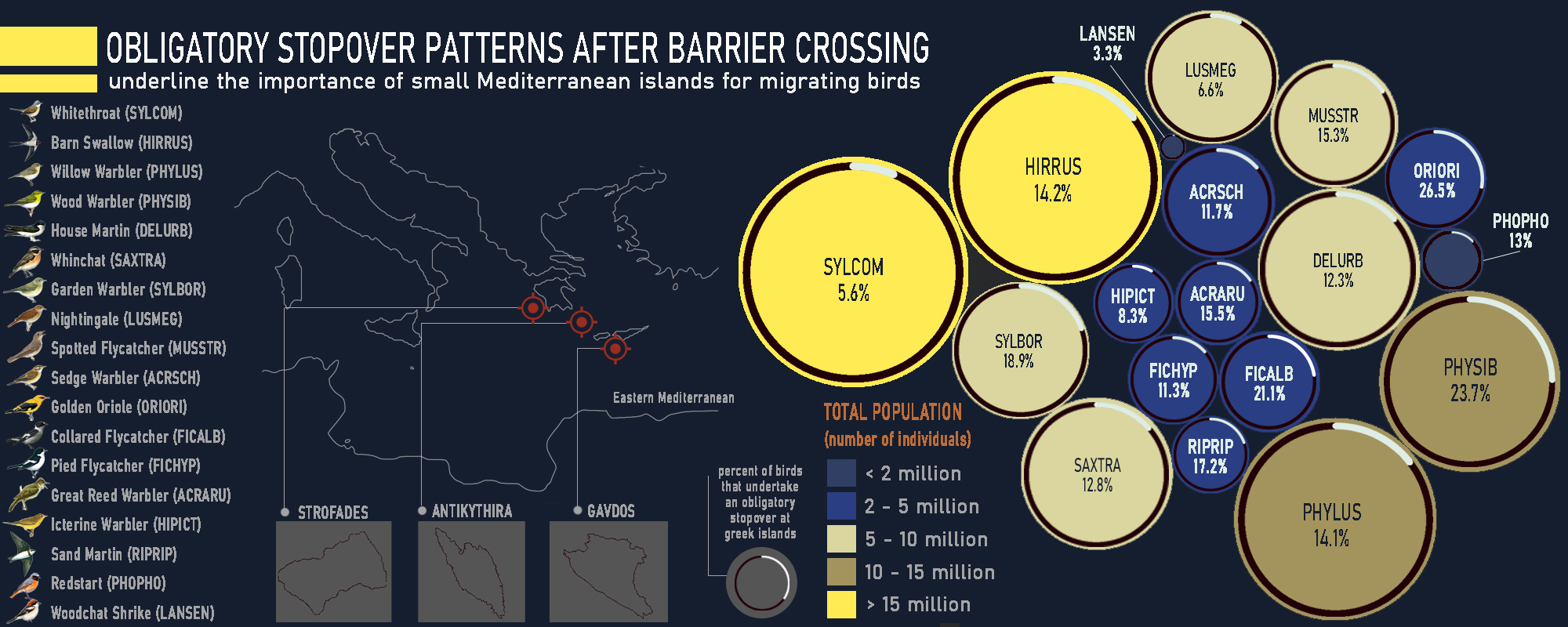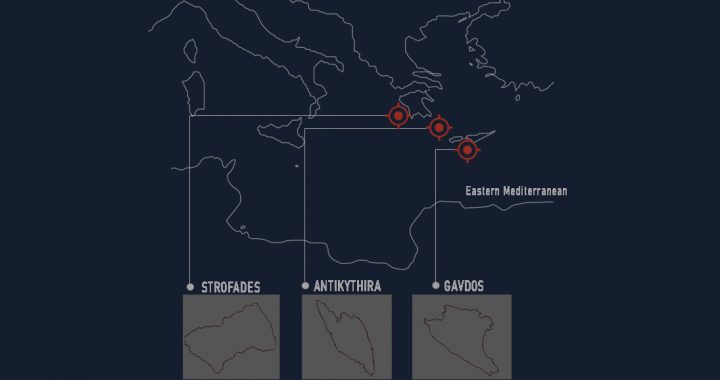Published in the latest issue of Animal Migration, our new study underlines the significance of small islands and coastal areas in the Mediterranean as obligatory refuelling sites while their conservation value for migratory birds is highlighted under the perspective of climate change.
Migration is indeed the most energy-demanding task in a bird’s life cycle. When facing the Sahara Desert, a bird can cross it by intermittent flight, whereas the Mediterranean Sea must be crossed in non-stop continued flight. Small and large islands scattered in the Mediterranean Sea are often the first stopovers available for rest and refuel that migratory birds encounter after crossing the Sea and the desert.
Using empirical data coupled with avian flight models and ringing data, we were able to calculate the lean body mass of birds captured after having crossed vast ecological barriers, and then estimate the percentage of birds of the studied species that would not be able to resume their migration without refuelling on any of the three small Greek islands: Gavdos, situated in the Libyan sea, Strofades in the Ionian Sea and Antikythira, where the Anikythira Bird Observatory is based in the Aegean sea.
We estimated that almost 185 million birds of the studied species would migrate through Greece during spring. Of those, the proportion of birds from different species that would not be able to continue their migration unless they performed an obligatory stopover at one of these three insular stopover sites, was calculated at 14% or almost 30 million.

These findings point to a potentially alarming increase in bird mortality, as many migratory bird species may or may not successfully adapt to even small changes on these island habitats as those expected from increased global warming, but also underline the importance of on-going monitoring projects to further understand the evolutionary mechanisms through which climate change will affect individuals and populations.
